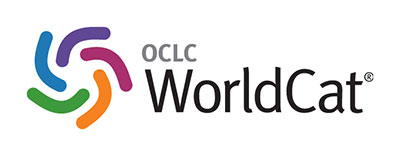Alcohol craving in women who receive addiction treatment
DOI:
https://doi.org/10.26871/killcana_salud.v3i1.209Abstract
Introduction: Craving is a condition that manifests when a person with a degree of alcohol dependence initiates a withdrawal process. This is the main symptom of addictive behaviors, where intensity is usually related to the patient’s improvement, and its presence influences the persistence of such behaviors, greatly. When craving appears with great intensity, it becomes one of the main causes of the patient’s relapse in alcohol consumption. Objective: to characterize the predominant level of craving in the inpatients receiving treatment in two female addiction clinics in the city of Cuenca, and at the same time, to associate it with socio-psychological variables such as age, education and marital status. Materials and Methods: The research methodology will be based mainly on quantitative, descriptive, cross-sectional cohort, and non-probabilistic sampling, with an intentional sample of 32 unpaid female volunteers between the ages of 18 and 52. The Alcohol-Related Disorder identification test was the same used to characterize an alcohol use disorder. This allowed to identify women with alcohol dependence. The multidimensional alcohol craving scale was then applied. Results: The results show a craving level intensity of 53.1%, where a higher prevalence of 64.7% is present in single women with high school academic level, whose ages range between 18 to 29. Conclusions: It was found that, at the beginning of the withdrawal process, the women under study, present craving manifestation at mild, moderate or intense levels; where moderate or intense levels are significant.
Downloads
References
Perez, Bartolome. Validación de tres instrumentos de evaluación del craving al alcohol en una muestra española: PACS, OCDS-5 Y ACQ-SF-R. [Internet]. Disponible a partir de: http://www.redalyc.org/pdf/839/83946520001.pdf
Amangandi A, David J, Mera A, Sebastián P. Tipos de personalidad y craving en los miembros del grupo de alcohólicos anónimos “sultana de los andes” de riobamba, periodo julio - diciembre 2015. 2015; Disponible a partir de: http://dspace.unach.edu.ec/handle/51000/929
Míguez, Maria del Carmen; Permuy, Beatriz. Características del alcoholismo en mujeres | Míguez | Revista de la Facultad de Medicina [Internet]. Disponible a partir de: https://revistas.unal.edu.co/index.php/revfacmed/article/view/57482/63088
Hennis, Anselm. Informe de situación regional sobre el alcohol y la salud en las Américas [Internet]. Disponible a partir de: http://iris.paho.org/xmlui/bitstream/handle/123456789/7708/9789275318553_esp.pdf
Guardia-Serecigni J, Estorch M, Surkov S, Camacho M del V, García-Ribas G. La Escala Multidimensional de Craving de Alcohol y el SPECT con yodobenzamida[I123] como predictores de recaída precoz en pacientes que presentan dependencia del alcohol. Adicciones. 2011;23(2):157–64. Disponible a partir de: http://www.redalyc.org/articulo.oa?id=289122828009
Castillo García M. Intervención psicológica para el tratamiento de las adicciones en el centro de psicología clínica Olivencia. 2014 Nov 4; Disponible a partir de: http://repositorio.ual.es/handle/10835/3081
Martinez, Beatriz. La recaída en el consumo de alcohol y sustancias: un tratamiento alternativo desde la perspectiva de mindfulness (Páginas 37-53, Infonova no 27). (PDF Download Available) [Internet]. Disponible a partir de: https://www.researchgate.net/publication/284142210_La_recaida_en_el_consumo_de_alcohol_y_sustancias_un_tratamiento_alternativo_desde_la_perspectiva_de_mindfulness_Paginas_37-53_Infonova_n_27
Pérez-Romero LÁ, Quiroga-Anaya H. Supresión de pensamientos y días sin consumo de droga como variables predictivas del craving. Revista Latinoamericana de Medicina Conductual / Latin American Journal of Behavioral Medicine. 2015 Dec 13;4(2):83–92. Disponible a partir de: http://www.revistas.unam.mx/index.php/rlmc/article/view/53610
Carreto, Rómulo. Perfil psicopatológico y prevalencia de patología dual de los pacientes con dependencia alcohólica en tratamiento ambulatorio [Internet]. Disponible a partir de: https://psiquiatria.com/patologia_dual/perfil-psicopatologico-y-prevalencia-de-patologia-dual-de-los-pacientes-con-dependencia-alcoholica-en-tratamiento-ambulatorio/
Montero-Bancalero, Francisco Jose, Riera JG, Molina-Fernández AJ. APROXIMACIÓN AL ALCOHOLISMO FEMENINO PARTIENDO DE LA SITUACIÓN ESPAÑOLA. Anuario de investigación en adicciones [Internet]. 2016 Jan 7; Disponible a partir de: http://www.revistascientificas.udg.mx/index.php/AIA/article/view/4790
Pilatti A, Montejano GR, Lozano OM, Pautassi RM. Relación entre impulsividad y consumo de alcohol en hombres y mujeres argentinos. Quaderns de Psicologia. 2016 Apr 30;18(1):75–91. Disponible a partir de: http://www.quadernsdepsicologia.cat/article/view/v18-n1-pilatti-rivarola-lozano-etal
Soberanes JG, Piña MAL. El alcoholismo desde la perspectiva de género. El Cotidiano. 2005;(132):84–91. Disponible a partir de: http://www.redalyc.org/articulo.oa?id=32513209
Guardia, Josep. SOCIDROGALCOHOL: Nueva Guía Clínica de Alcoholismo basada en la Evidencia Científica. El alcohol está presente en el 90% de los policonsumos - lasDrogas.info [Internet]. [cited 2018 Feb 7]. Disponibles a partir de: http://www.lasdrogas.info/noticias/30467/socidrogalcohol-nueva-guia-clinica-de-alcoholismo-basada-en-la-evidencia-cientifica-el-alcohol-esta-presente-en-el-90-de-los-policonsumos.html
Alvarado, Maria Elena. Validez y confiabilidad de la versión chilena del Alcohol Use Disorders Identification Test (AUDIT) [Internet]. Disponible a partir de: https://scielo.conicyt.cl/scielo.php?script=sci_arttext&pid=S0034-98872009001100008
Serecigni JG, Vived EL, Llosa NS, Burguete T, Moya MC. Utilidad de la Escala Multidimensional de Craving de Alcohol (EMCA) en la práctica clínica. Adicciones. 2006 Sep 1;18(3):265–74. Disponibles a partir de: http://www.adicciones.es/index.php/adicciones/article/view/343










